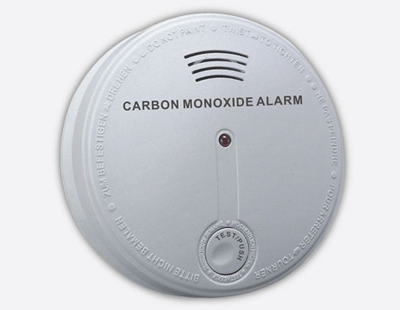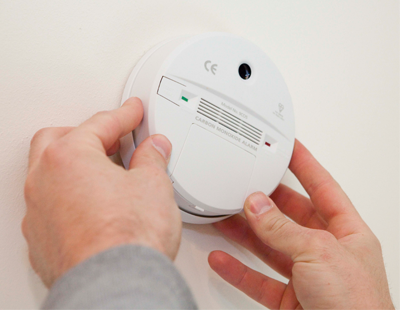The law around the requirement for smoke and carbon monoxide alarms in rental properties will change in England on October 1.
Propertymark has prepared a comprehensive guide for letting agents.
The rules have been extended so that carbon monoxide alarms must be installed in rooms of a private rented property where there is any fixed combustion appliance such as gas and oil-fired boilers and be in proper working order at the start of a new tenancy.
The trade body claims there are some subtle but significant changes to the 2015 regulations that all letting agents need to digest before they come into force in one month’s time.
It also warns that agents must update their property management practices accordingly to ensure they and their landlords are compliant.
Here are the key elements of the new regulations:
Smoke alarms All private rental homes have been required to have at least one working smoke alarm on each storey where there is a room used as living accommodation since 2015. The only change to this part of the regulations is that it will now also apply to all social rented homes.
Carbon monoxide alarms All rented properties must now have a carbon monoxide alarm in rooms used as living accommodation where there is any type of fixed combustion appliance, with the exception of gas cookers. The 2015 regulations required alarms in rooms with solid fuel combustion appliances, such as wood burners. Rooms with gas cookers only are not included in the scope of the updated regulations due to evidence that shows they are responsible for fewer incidents of carbon monoxide poisoning than gas boilers, which are generally used continuously for longer periods.
What type of alarms are required? The regulations do not stipulate the type of alarms that must be used but do recommend smoke alarms that are compliant with British Standards BS 5839-6 and carbon monoxide alarms that are British Standards BS 50291-compliant. Alarms with ‘sealed for life’ batteries are considered a better option than those with replaceable batteries.
How to test the alarms are in proper working order? There is a requirement to ensure alarms work at the start of each new tenancy. For example, by pressing the test button until the alarm sounds. If a tenant reports an alarm is not in proper working order during the tenancy and it is found not to be, their agent or landlord will be legally required to repair or replace it as soon as reasonably practicable. If a battery-powered alarm is not in working order during the tenancy, it is the responsibility of a tenant to check and, where possible, replace the batteries themselves. If the alarm still does not work, or if tenants are unable to replace the batteries themselves, they should report this to their agent or landlord.
What should agents do if an alarm is reported to them as not working? Agents and landlords must arrange for the repair or replacement of alarms if they are found to not be in proper working order as soon as practicably possible. If action is not taken and a local authority issues a remedial notice to enforce the replacement or repair, agents or landlords must take the specified action with 21 days. They may make written representations which will suspend the notice for seven days. The local authority will need to inform the agent or landlord of their final decision in writing within those seven days, or the notice will be automatically withdrawn.
Enforcement If action is not taken, and an agent or landlord is not considered to have taken all reasonable steps to comply with the notice, the local authority can impose a fine of up to £5,000 per breach. There will be the right to appeal any fines to the First-tier Tribunal.
Exemptions As laid out in the 2015 regulations there are exemptions for shared accommodation with the landlord or landlord’s family; long leases; student halls of residence; hostels and refuges; care homes; hospitals and hospices; other accommodation relating to healthcare provision.
Propertymark says its advice to agents is, if they haven’t already, arrange for the installation of new alarms and repair of existing alarms and to update their property management practices accordingly and without delay.
Landlords and agents are expected to be compliant October 1 with fines of £5,000 for non-compliance.
Read the Smoke and Carbon Monoxide Alarm (Amendment) Regulations 2022 and guidance notes in full at: www.gov.uk/government/publications/smoke-and-carbon-monoxide-alarms-explanatory-booklet-for-landlords/the-smoke-and-carbon-monoxide-alarm-england-regulations-2015-qa-booklet-for-the-private-rented-sector-landlords-and-tenants.













%20-%20IMAGE%20Client%20Accounting%20%E2%80%93%20what%20are%20your%20options.jpg)





Join the conversation
Be the first to comment (please use the comment box below)
Please login to comment